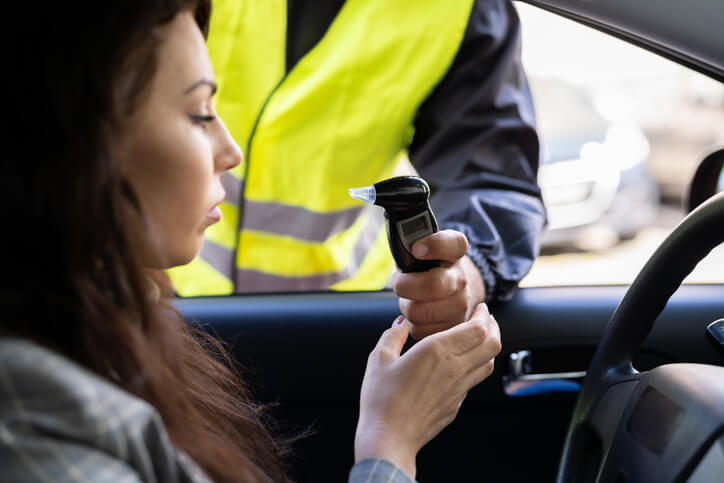Being pulled over by a police officer can be an intimidating experience. If you are pulled over for suspected drunk driving, it’s crucial that you understand your legal rights. The results of a breathalyzer test could lead to a DWI conviction.
Can you refuse a breathalyzer test as a driver in North Carolina? The answer is somewhat complicated. Although you can refuse a breathalyzer test, you can face negative consequences, including a suspended driver’s license.
North Carolina’s Implied Consent Law
People who drive in North Carolina agree to the state’s implied consent laws. In other words, drivers give implied consent to drug and alcohol testing if they are pulled over for driving while impaired by alcohol or other controlled substances.
Even if you have not verbally consented to testing, you give your implied consent when driving on North Carolina roads. When a police officer has reasonable grounds to believe that a person has been driving while intoxicated, the officer can obtain a chemical analysis to determine the driver’s intoxication levels.
The Penalties for Refusing a Breathalyzer Test After You’ve Been Arrested
Police officers usually ask a driver to take a breathalyzer or blood test to determine their blood alcohol content (BAC). To convict a person of a DWI, prosecutors generally need to rely on tests that prove the driver’s BAC was above the legal limit. The first type of breathalyzer test police officers ask drivers to complete is a preliminary breath test (PBT).
The results of these portable breathalyzer devices are too unreliable for prosecutors to use them in court. However, if the test result exceeds the legal limit, you can be arrested and asked to take another breathalyzer test with an Intoxilizer.
Refusing the PBT test will not result in a suspension of a driver’s license. You could still be arrested if there is enough evidence. If you refuse to take the Intoxilyzer test at the police station, your driver’s license will be suspended for a year through a civil process. If you similarly refuse to take a blood test, the officers will likely obtain a search warrant to draw your blood.
Even if the charges against you are dismissed later or you’re found not guilty, your driver’s license will still be suspended for a year. Prosecutors can also use your refusal to undergo a breathalyzer test or blood draw as proof of your guilt when attempting to convict you of a DWI.
Pursuing Limited Driving Privileges After Your Driver’s License Is Revoked
If your driver’s license has been suspended, you have the right to petition the court for limited driving privileges. These limited driving privileges will allow you to drive to and from work, run errands, go to the doctor, attend school, and attend religious services. However, you will need to abide by a strict curfew.
Have You Been Charged with a DWI in North Carolina? Contact a Skilled Criminal Defense Attorney
Whether you refused to take a breathalyzer test or you took a test and are now facing DWI charges, you’ll benefit from working with an experienced attorney. One of the best things you can do to protect your legal rights is to remain silent and not answer questions until you have talked to a criminal defense attorney.
The attorneys at Greene Wilson & Styron Have an in-depth understanding of North Carolina’s DWI laws. We will use our experience and courtroom skills to pursue the best outcome possible in your case. Contact Greene Wilson & Styron to schedule a complimentary case evaluation and learn more about how we can advocate for your legal rights.
